Ditapis dengan
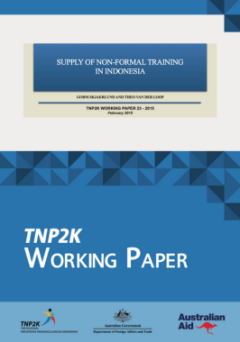
Supply of Non-Formal Training in Indonesia
This study examines the current situation with regard to non-formal training in Indonesia. 2 Specifically, the paper seeks to clarify the role of the most important stakeholders in skills training and the extent to 1 which the national skills training system – consisting of public and private training providers as well as the apprenticeship system – is able to meet labour market demands. Th…
- Edisi
- TNP2K Working Paper 23 - 2015
- ISBN/ISSN
- -
- Deskripsi Fisik
- xvii, 65 Halaman, PDF
- Judul Seri
- Working Paper
- No. Panggil
- 374.21 SKJ s
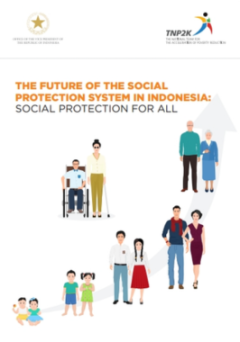
The Future Of The Social Protection System In Indonesia : Social Protection F…
Indonesia was among the few countries globally to experience an average growth rate of approximately 7 per cent annually prior to the Asian economic crisis. However, this dropped to approximately 5.6 per cent a year between 2007 and 2016, signaling the need to stimulate the economy, generate demand and increase consumption. Furthermore, while government efforts have had a positive impact in red…
- Edisi
- 1
- ISBN/ISSN
- 978-602-275-167-0
- Deskripsi Fisik
- xviii, 162 Halaman, PDF
- Judul Seri
- Textbook & Ebook
- No. Panggil
- 362 TNP t
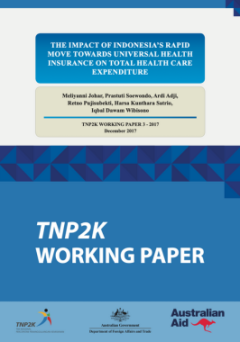
The Impact of Indonesia’s Rapid Move Towards Universal Health Insurance on …
Social health insurance in Indonesia dates from the 1990s but recently in 2014, the government announced its ambition to achieve universal coverage within five years. Jaminan Kesehatan Nasional (JKN) integrates all existing social health insurance schemes under one manager and one payer, the central Ministry of Health. Compared to previous schemes, JKN offers more generous benefits and can be a…
- Edisi
- TNP2K Working Paper 3 - 2017
- ISBN/ISSN
- -
- Deskripsi Fisik
- iii, 31 Halaman, PDF
- Judul Seri
- Working Paper
- No. Panggil
- 368.42 JOH t
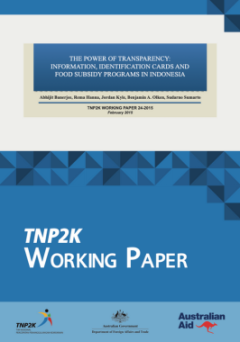
The Power of Transparency: Information, Identification Cards and Food Subsidy…
Can governments improve aid programs by providing information to beneficiaries? In our model, information can change how much aid citizens receive as they bargain with local officials who implement national programs. In a large-scale field experiment, we test whether mailing cards with program information to beneficiaries increases their subsidy from a subsidized rice program. Beneficiaries rec…
- Edisi
- TNP2K Working Paper 24-2015
- ISBN/ISSN
- -
- Deskripsi Fisik
- vii, 44 Halaman, PDF
- Judul Seri
- Working Paper
- No. Panggil
- 363.809598 BAN t
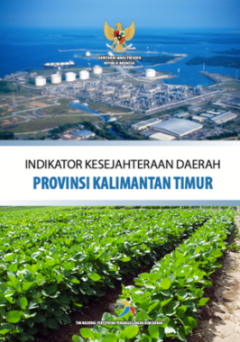
Indikator Kesejahteraan Daerah Provinsi Kalimantan Timur
Buku Indikator Kesejahteraan Daerah: Provinsi Kalimantan Timur adalah sebuah karya yang menyajikan gambaran mendalam mengenai kondisi kesejahteraan di wilayah tersebut. Dalam buku ini, berbagai indikator kesejahteraan yang relevan dan dapat diukur di tingkat daerah disajikan dengan detail.
- Edisi
- 1
- ISBN/ISSN
- -
- Deskripsi Fisik
- PDF, 54 Halaman
- Judul Seri
- Ebook
- No. Panggil
- 360 TNP i
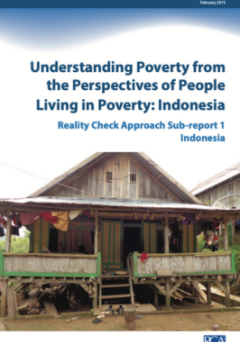
Understanding Poverty from the Perspective of People Living in Poverty: Indon…
This study was funded through the Reality Check Approach Plus (RCA+) project support provided by the Department of Foreign Affairs and Trade, Government of Australia. It was commissioned by the Monitoring and Evaluation working group of the National Team for the Acceleration of Poverty Reduction. The study aimed to gather people’s perspectives regarding the uptake and experiences of two of th…
- Edisi
- -
- ISBN/ISSN
- -
- Deskripsi Fisik
- PDF, 58 Halaman
- Judul Seri
- Textbook & Ebook
- No. Panggil
- 362.5 TNP u
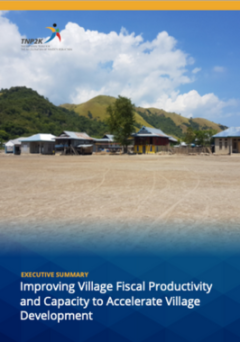
Improving Village Fiscal Productivity and Capacity to Accelerate Village Deve…
The Village Law provides two fundamental institutional arrangement to support village development: (i) the autonomy to manage their own development; and (ii) a significant allocation of financial resources (Village Fund) from the national budget (Anggaran Pendapatan dan Belanja Negara: APBN). It aims to reduce poverty and improve villagers’ welfare and their quality of life against the Human …
- Edisi
- -
- ISBN/ISSN
- -
- Deskripsi Fisik
- PDF, 20 Halaman
- Judul Seri
- Textbook dan Ebook
- No. Panggil
- 339.9 HID i
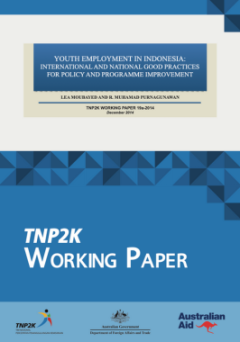
Youth Employment In Indonesia: International And National Good Practices For …
TNP2K’s mission is to coordinate poverty alleviation policies in Indonesia. As part of its tasks, TNP2K conducts and commissions research reports and studies with the objective of facilitating and informing evidence-based policy planning. TNP2K has undertaken several research activities and policy initiatives related to employment in Indonesia. This working paper, ‘Youth Employment in Indon…
- Edisi
- TNP2K Working Paper 19a-2014
- ISBN/ISSN
- 978-602-275-112-0
- Deskripsi Fisik
- xviii, 68 Halaman, PDF
- Judul Seri
- Working Paper
- No. Panggil
- 331.13309598 MOU y
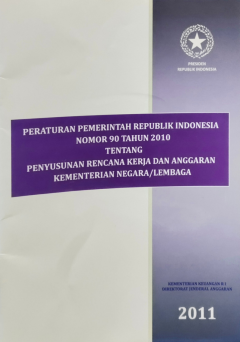
Peraturan Pemerintah Republik Indonesia Nomor 90 Tahun 2010 Tentang Penyusuna…
Peraturan ini diterbitkan sebagai pedoman dalam menyusun rencana kerja dan anggaran bagi kementerian negara dan lembaga di Indonesia. Langkah ini diperlukan untuk meningkatkan transparansi, akuntabilitas, dan efisiensi dalam pengelolaan keuangan negara.
- Edisi
- 1
- ISBN/ISSN
- -
- Deskripsi Fisik
- 32 halaman
- Judul Seri
- Textbook
- No. Panggil
- 354.8 KEM p

Buku Panduan Rapat Kerja Teknis Tim Koordinasi Penanggulangan Kemiskinan Tahu…
- Edisi
- 1
- ISBN/ISSN
- -
- Deskripsi Fisik
- PDF, 22 Halaman
- Judul Seri
- Textbook dan Ebook
- No. Panggil
- 362.5 TNP b
- Edisi
- 1
- ISBN/ISSN
- -
- Deskripsi Fisik
- PDF, 22 Halaman
- Judul Seri
- Textbook dan Ebook
- No. Panggil
- 362.5 TNP b

 Karya Umum
Karya Umum  Filsafat
Filsafat  Agama
Agama  Ilmu-ilmu Sosial
Ilmu-ilmu Sosial  Bahasa
Bahasa  Ilmu-ilmu Murni
Ilmu-ilmu Murni  Ilmu-ilmu Terapan
Ilmu-ilmu Terapan  Kesenian, Hiburan, dan Olahraga
Kesenian, Hiburan, dan Olahraga  Kesusastraan
Kesusastraan  Geografi dan Sejarah
Geografi dan Sejarah